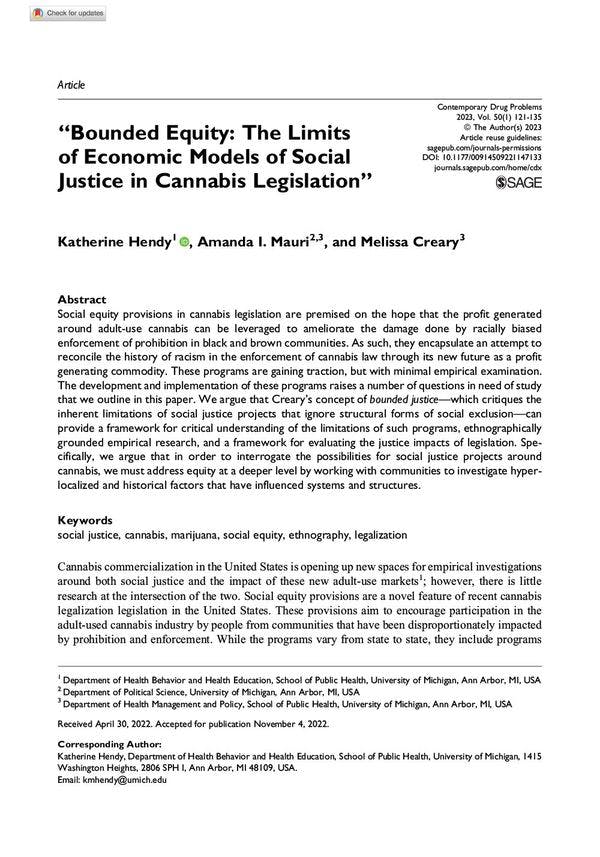« L'équité limitée » : Les limites des modèles économiques de justice sociale dans la législation sur le cannabis
Hendy et al. examinent le potentiel et les limites des dispositions existantes en matière d'équité sociale dans la législation sur le cannabis, en soulignant l'importance des cadres de réparation qui s'attaquent aux formes structurelles de l'exclusion sociale. Pour en savoir plus, en anglais, veuillez lire les informations ci-dessous.
Social equity provisions in cannabis legislation are premised on the hope that the profit generated around adult-use cannabis can be leveraged to ameliorate the damage done by racially biased enforcement of prohibition in black and brown communities. As such, they encapsulate an attempt to reconcile the history of racism in the enforcement of cannabis law through its new future as a profit generating commodity. These programs are gaining traction, but with minimal empirical examination.
The development and implementation of these programs raises a number of questions in need of study that we outline in this paper. We argue that Creary’s concept of bounded justice—which critiques the inherent limitations of social justice projects that ignore structural forms of social exclusion—can provide a framework for critical understanding of the limitations of such programs, ethnographically grounded empirical research, and a framework for evaluating the justice impacts of legislation. Specifically, we argue that in order to interrogate the possibilities for social justice projects around cannabis, we must address equity at a deeper level by working with communities to investigate hyper-localized and historical factors that have influenced systems and structures.
Click below to read the full article (limited access).
